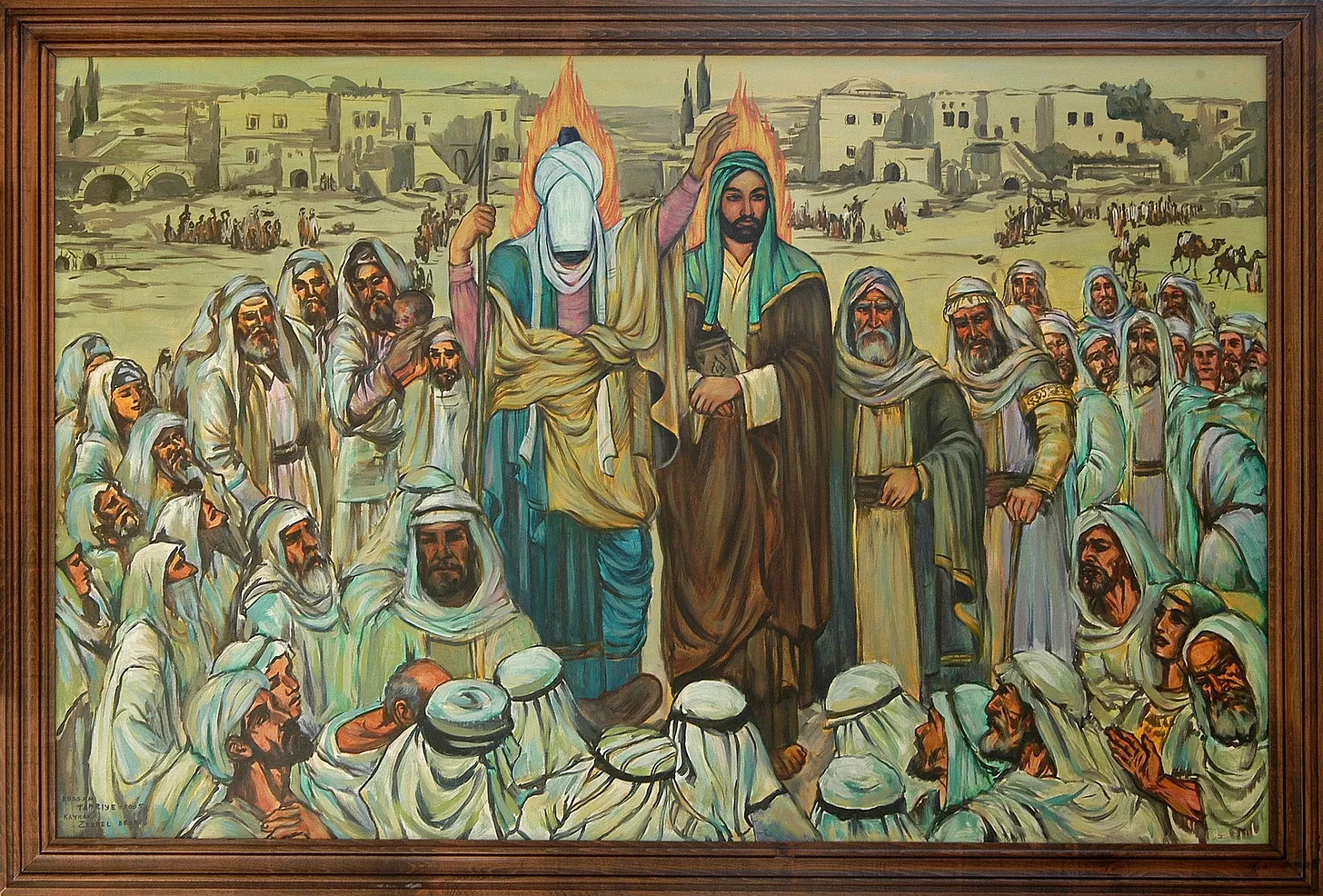First Ever Qawwali
Qawwali (क़व्वाली): is a form of Sufi devotional singing, usually performed at Sufi shrines or dargahs. The name comes from the term ‘Qawl’ or qaul which means sayings or teachings (of the Prophet).
Year: ~1300
Location: Panipat, Delhi Sultanate (Present Day Haryana)
At the Khanqah (sufi lodge) of Bu Ali Shah Qalandar there was a gathering of sufi saints, Amir Khusro being one of them. Bu Ali Qalandar requests Amir Khusro to sing something in the praise of Hazrat Ali. Khusro sets a qaul (saying) of Prophet Muhammad to music, thus creating (& singing) the first ever Qawwali. The qaul (saying) was
Man Kunto Maula
Fa haza Ali-un Maula
But wait… Who is Hazrat Ali & what do the above lines mean? Let me take you some centuries ago in time.
Year: 632
Location: Ghadir Khumm (somewhere on the path between Mecca and Medina)
Prophet Muhammad was getting old and at 62 years of age, he had just completed his Hajj. Alongside Prophet in this journey was Ali, his son-in-law. At a place called Ghadir Khumm, the Prophet makes an announcement - “Man Kunto Maula, Fa haza Ali-un Maula” which translates to “He whose maula I am, Ali is his maula too”. Many believe this to be Prophet’s way of announcing Ali as his successor. The Prophet died later, the same year.

Trivia Time: The word ‘Maula’ in Arabic can mean multiple things (e.g. leader, friend etc) depending on the context. Shia Muslims believed this sermon to be a clear designation of Ali to lead the Muslim community after Prophet Muhammad, while the Sunni community meanwhile regards the declaration as a simple affirmation of Prophet Muhammad’s esteem for Ali and nothing more. This ambiguity (of what the word ‘Maula’ meant in the given context) is the reason why we have two sects in Islam.
Enough of the boring history. Now that you know who Ali was, let’s read the rest of the Qawwali
Man Kunto Maula
Fa haza Ali-un Maula
(Whoever accepts me as a master,
Ali is his master too.)
Shaah-e-Mardaan, Sher-e-Yazdaan, Quwwat-e-Parvardigaar
Laa Fatah Illaa Ali, Laa Saif Illaa Zulfiqaar
(King of the brave, Lion of God, Strength of God.
There is no one like Ali and there is no sword like Zulfiqaar)*
Ali imaam-e-manasto manam Ghulaam-e-Ali
hazaar jaan-e-giraamii fidaa-e-naam-e-Ali
(Ali is my master, I am the slave of Ali.
Thousands of lives can be sacrificed for the sacredness of name of Ali.)
(*Zulfiqaar = sword of Ali given to him by the Prophet)
There have been numerous renditions (with modified/new lyrics) of this Qawwali. Some of the famous ones are
- Coke Studio: Season 9 by Javed Bashir & Ali Azmat
- Live concert recording of Nusrat Fateh Ali Khan.
- From the Bollywood movie: Gunday
You can read more about the above mentioned things at